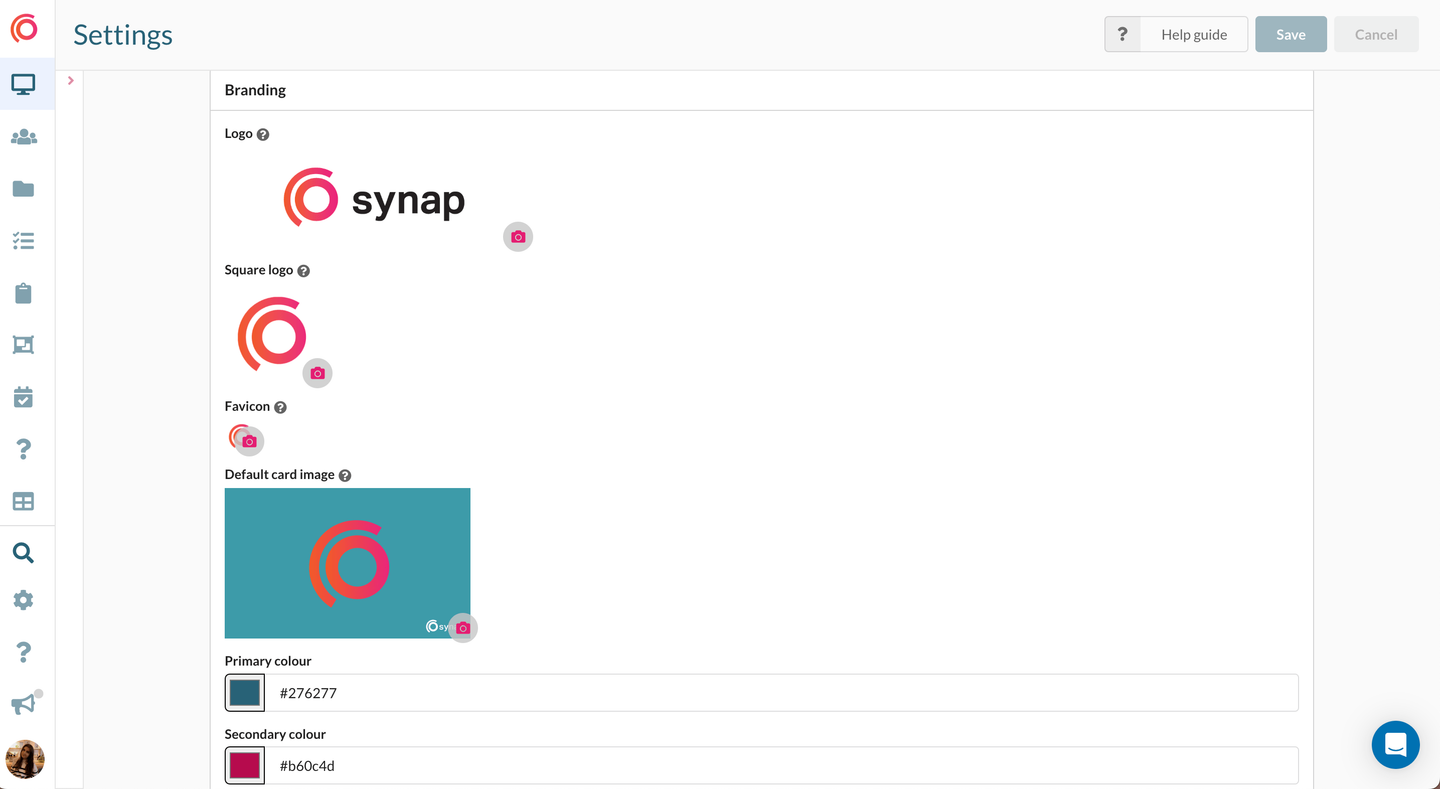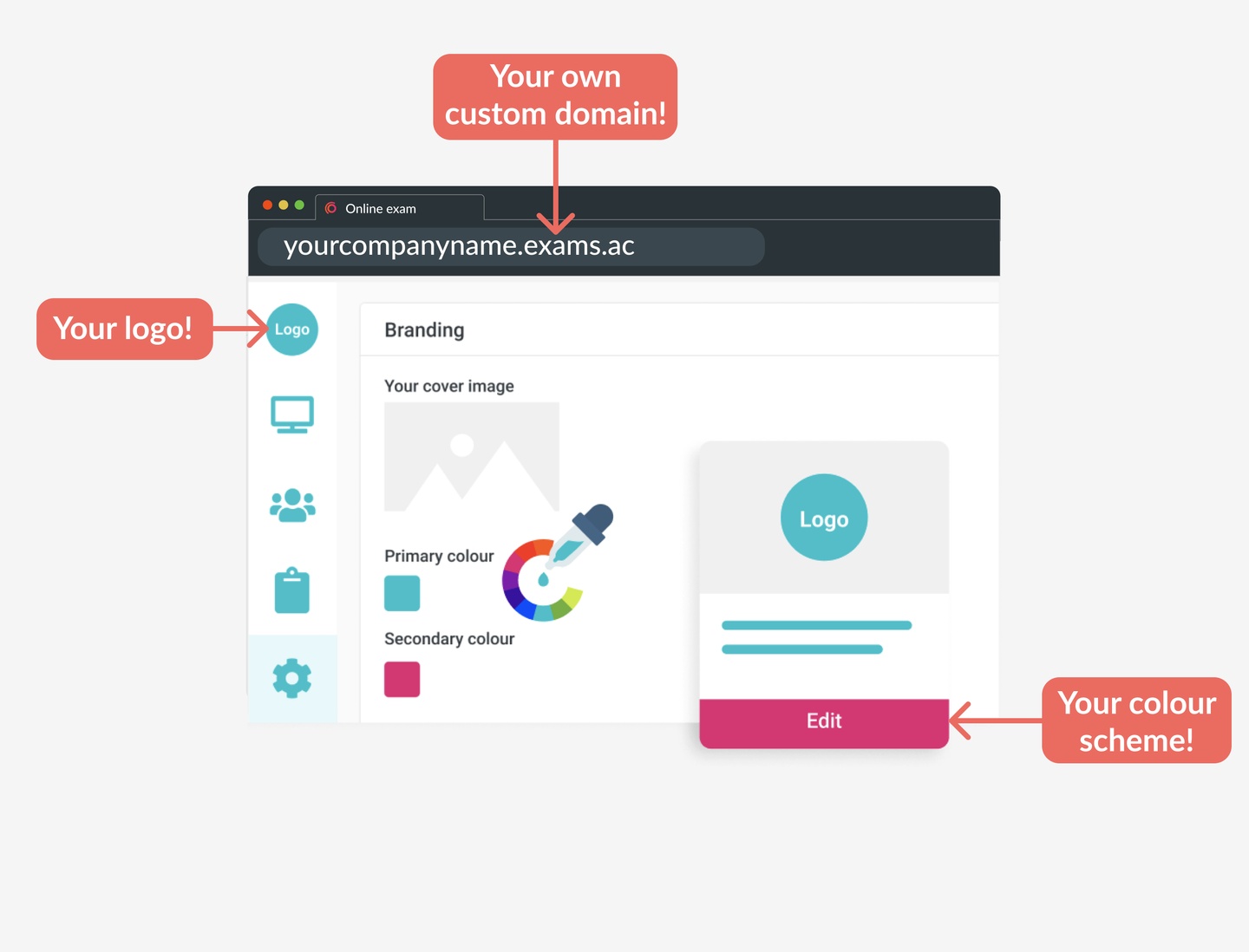Many organisations require a seamless, professional solution for conducting online exams. White-label online exam platforms offer a powerful way for businesses, educational institutions, and training providers to deliver assessments under their own brand, reinforcing brand identity while creating a professional and trustworthy environment for test-takers. This approach enhances brand consistency but also offers cost-effective and scalable benefits. In this article, we explore the advantages of white-labelling and the top features to look for in an online exam platform.
What is white-labelling?
White labelling is a business practice where one company produces a product or service that other companies rebrand and market as their own. Essentially, the original manufacturer allows the reseller to customise the product's branding - such as logos, colours, and design - so it appears as if the reseller created it. In the context of online exam platforms, white labelling allows organisations to customise the platform's interface, features, and branding to align seamlessly with their own identity, offering a professional and personalised experience to their students and clients.
Why is white-labelling useful?
Enhanced brand consistency
White-labelling an online exam software allows organisations to ensure that the exam experience reflects their unique branding. By making it appear as their own solution, it fosters brand recognition, trust, and a professional image, making students and clients feel they are using a proprietary system rather than an external tool. Consistent branding across the platform enhances brand awareness, reinforcing the organisation's identity in the minds of users and increasing its credibility in the market.
Cost-effective solution
Developing a custom online exam platform from scratch requires a significant investment in software development, infrastructure, and ongoing maintenance. White-labelling offers a cost-effective alternative, allowing organisations to benefit from an advanced, fully-functional system with their branding without incurring high development costs.
Faster implementation and deployment
While building a custom solution can takes months or even years, a white-labelled online exam system can be up and running in a matter of days or weeks. This quick deployment allows organisations to focus on delivering exams rather than spending time and resources on software development.
Improved user experience
A well-branded platform provides students and test-takers with a seamless and familiar interface, reducing confusion and improving engagement. Seeing familiar colours, logos, and branding helps users feel more comfortable and confident, reinforcing trust. This familiarity creates a smoother, more reassuring exam experience, leading to higher user satisfaction.
Scalability and flexibility
Many white-labelled exam platforms offer scalable features that can grow with your organisation, accommodating increasing numbers of users and evolving requirements. Whether you're a small training provider or a large educational institution, you can expand your offering without worrying about technical limitations.
Compliance and security
A reputable white-labelled online exam tool will come with built-in compliance measures such as GDPR, data protection, and secure authentication methods. This ensures that your organisation meets regulatory standards without the need for additional investments in security infrastructures.
Competitive advantage
Offering a fully branded online exam platform gives organisations a competitive edge. It allows businesses to position themselves as industry leaders, increasing credibility and making it easier to attract new customers or students.
Key white-labelling features in online exam platforms
1. Branding
Customise the platform’s interface with your organisation’s logo, colour scheme, fonts, and overall design to ensure brand consistency. For example, an online certification provider can apply its signature blue and white theme to maintain a cohesive look and feel that aligns with its marketing materials.

2. Custom domain
Use your own domain name (e.g., yourcompany.exams.ac) instead of a generic provider URL, enhancing credibility and improving user trust by presenting a professional appearance. For instance, a university offering online assessments can use assessments.universityname.ac rather than a third-party platform URL, reinforcing its authority and authenticity.
3. Custom email sender
Configure the system to send emails (such as exam invitations and result notifications) from your organisation’s domain rather than a third-party provider, reinforcing brand presence and reducing the risk of emails being marked as spam. For example, a training institute can send exam confirmations from exams@traininginstitute.com instead of a generic noreply@examplatform.com, ensuring recipients recognise and trust the sender.
4. Custom terms and conditions
Define and implement your own terms and conditions for candidates to agree to before an exam. This ensures compliance with your organisation’s policies and legal requirements, covering aspects like data privacy and exam integrity. A corporate certification programme may include clauses specific to confidentiality and non-disclosure, ensuring employees do not share test content externally.
5. Custom data fields and attributes
Tailor data collection fields to suit your organisation’s needs, allowing for better reporting, tracking, and personalised exam experiences. For instance, a medical licensing body can add fields for professional registration numbers and speciality areas to streamline candidate verification.
6. Multilingual Support
Provide exams in multiple languages to cater to a global audience and improve accessibility for non-native speakers. For example, an international certification body can offer tests in English, Spanish, and Mandarin, ensuring candidates worldwide can take exams in their preferred language.

Conclusion
By leveraging these white-labelling features, organisations can provide a branded, efficient, and scalable online exam experience that aligns with their unique requirements, enhances user engagement, and ultimately strengthens their market presence and brand awareness.
Discover Synap’s white-labelling capabilities
Explore how you can deliver online exams from a fully branded system with a tailored demo and a 14-day free trial.



